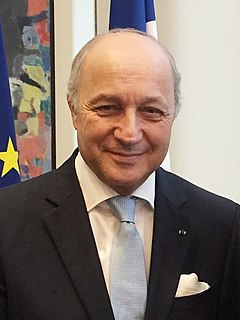A Quote by Paolo Gentiloni
We [European countries] probably need to move forward together, each at their own speed. The faster ones, that could be the countries in the euro zone. The others would be those who are interested in the continued development of the common market, but reject the idea of an ever stronger political integration.
Related Quotes
We need to move forward, from the common currency to the banking union to a common financial policy and, in the middle-term, to a common foreign and security policy. That will take time, because we need to figure out how to deal with those countries that don't always want a more tightly integrated European Union.
Germany has always stood for an E.U. of the 27 countries. But in light of Britain's continued resistance to further integration steps, as we saw with the fiscal pact, there are limits to my optimism in this regard. It's quite possible that we will have to create the new institutions for the euro zone first.
Thanks to the euro, our pockets will soon hold solid evidence of a European identity. We need to build on this, and make the euro more than a currency and Europe more than a territory... In the next six months, we will talk a lot about political union, and rightly so. Political union is inseparable from economic union. Stronger growth and Euorpean integration are related issues. In both areas we will take concrete steps forward.
First of all, Greece won't go down. We're talking about a country that is capable of making change. Europe will not allow the destabilization of the 27-country euro zone. But if there were no action, then markets would start becoming jittery about other countries - and not only Spain and Portugal, but other countries in the European Union.
I think that what started out as a European Union originally was probably a really wonderful and world-changing idea, the idea of a kind of cooperation and interdependence between countries. But the idea that individualization would work on common ground, not on conflict, not against each other, but to find how each benefitted from the other I thought was an incredibly hopeful and positive possibility.
I don't want euro bonds that serve to mutualize the entire debt of the countries in the euro zone. That can only work in the longer-term. I want euro bonds to be used to finance targeted investments in future-oriented growth projects. It isn't the same thing. Let's call them 'project bonds' instead of euro bonds.































